David Adedeji Adeleke, globally known as Davido, is more than just an Afrobeats titan. Beyond the glitz of diamond chains and global tours lies a complex web of political affiliations, familial legacy, and strategic alliances with Nigeria’s ruling class.
In recent years, the DMW boss has sat down with a spectrum of political figures—ranging from incumbent President Bola Ahmed Tinubu and Vice President Kashim Shettima, to opposition figures like Atiku Abubakar and Bukola Saraki, and National Assembly heavyweights like Godswill Akpabio.
This article peels back the layers of these encounters, their significance, the controversies that followed, and the enduring question: Is Davido becoming a political force or simply navigating the corridors of power for influence?
THE ADELEKE DYNASTY—A POLITICAL BLOODLINE
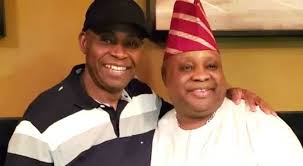
Davido is not new to power. He is the nephew of Governor Ademola Adeleke, the current Governor of Osun State, and the son of Adedeji Adeleke, a billionaire business magnate with strong political ties.
His late uncle, Senator Isiaka Adeleke, was the first civilian governor of Osun State and a two-time senator.
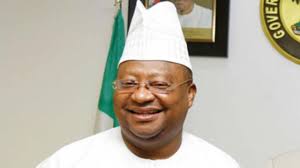
These family ties have served as both political springboards and shields. Even at the height of Davido’s career controversies—like the 2017 Tagbo scandal—his family’s influence loomed large, not just as moral support but as institutional insulation.
THE TINUBU MEETING (2025): A CULTURAL VISIT OR POLITICAL ALIGNMENT?
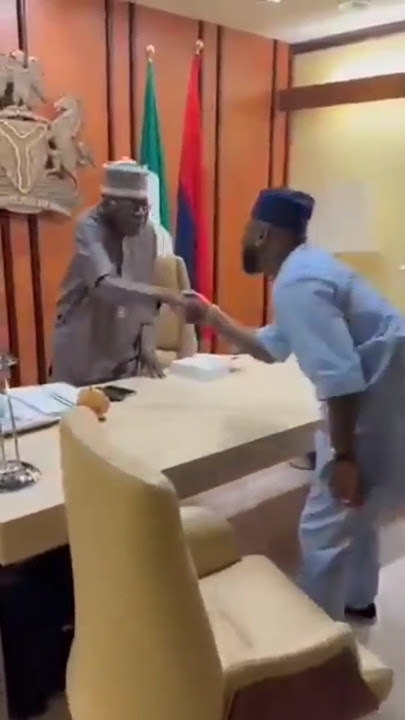
On May 29, 2025, Davido stunned Nigerians when he visited President Bola Ahmed Tinubu at the Presidential Villa in Abuja. The visit followed Tinubu’s one-year anniversary in office — and though no official agenda was publicly shared, photos and videos from the visit dominated social media platforms for days.
In the viral footage, Davido stood beside Tinubu, exchanging pleasantries alongside his close allies — Ubi Franklin and Cubana Chief Priest. The President, smiling, responded, “I’m hearing two APC boys and one musician,” prompting laughter from those present. Davido grinned but gave nothing away politically.
Why It Mattered: Tinubu’s presidency remains divisive. Meeting him — even under a cultural guise — was enough to spark accusations of betrayal from some quarters, especially among Davido’s supporters who had viewed him as aligned with PDP, given his uncle’s status.
Public Reaction:
- Twitter/X exploded with mixed emotions. Some applauded him for diplomacy; others accused him of “cosying up to the opposition.”
- Several cultural commentators defended the visit as symbolic, noting Davido had not made any partisan endorsements during the visit.
CALLING A GOVERNOR FROM THE VP’S OFFICE: THE SHETTIMA MOMENT
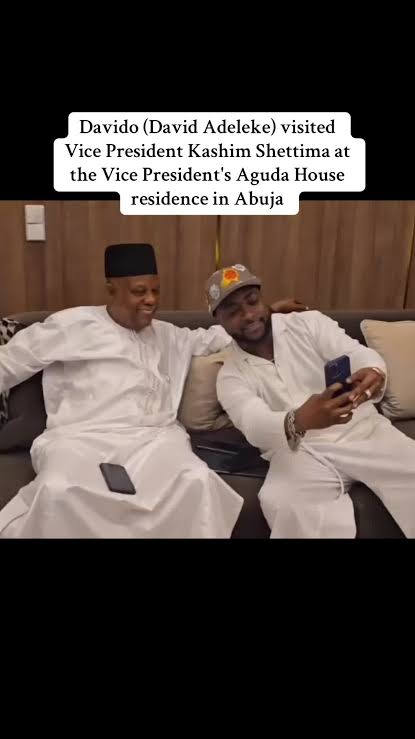
On the same day as the Tinubu visit, Davido stopped by the office of Vice President Kashim Shettima.
But what made headlines was Davido’s decision to call Osun State Governor Ademola Adeleke, his uncle, on the spot.
Handing the phone to VP Shettima, the call served as an awkward but symbolic display of bridging party divides.
This symbolic gesture highlighted Davido’s role as a go-between—an influencer bridging PDP-governed Osun with the APC-led Federal Government.
Why It Mattered: Davido appeared to be positioning himself not as a partisan figure but as someone comfortable with every political camp — an unusual and risky position in a deeply polarized Nigeria.
Public Reaction:
- Many youths admired the boldness.
- Political analysts speculated whether Davido was softening the ground for future political ambitions — or merely protecting family interests.
WITH AKPABIO AND OTHER POLITICIANS IN THE RED CHAMBER: A MEETING OF CULTURE AND POWER
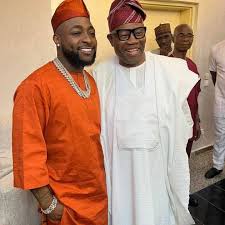
Davido also met Senate President Godswill Akpabio, a long-time political heavyweight and former Minister of Niger Delta Affairs and some other politicians.
Though the discussion details remain undisclosed, sources within the National Assembly hinted at conversations around cultural investment, entertainment policy, and youth inclusion.
Akpabio, himself a former governor and musician at heart, reportedly shared enthusiasm about integrating the entertainment sector into legislative reform — including potential tax reliefs for music entrepreneurs.
Why It Mattered: For the first time, Davido wasn’t just a guest. He was being engaged as a stakeholder. With music forming a huge part of Nigeria’s soft power, it became increasingly clear that Davido’s role was growing beyond that of a performer.
FLASHBACK: DAVIDO, ATIKU, AND THE PDP YEARS
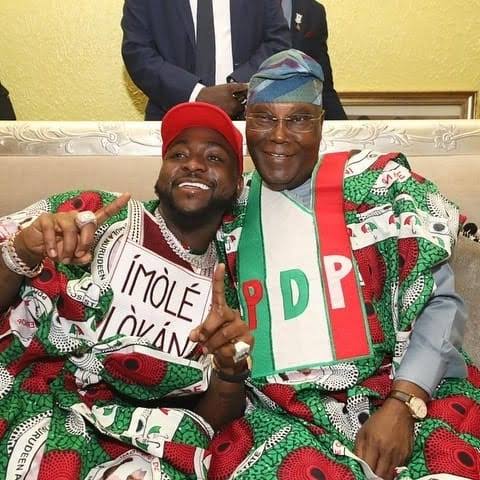
Rewind to 2018–2022. Davido was very publicly aligned with the PDP. He was not just seen with Atiku Abubakar and Bukola Saraki — he actively campaigned for his uncle Ademola Adeleke’s gubernatorial ambition, drumming up youth support across Osun State.
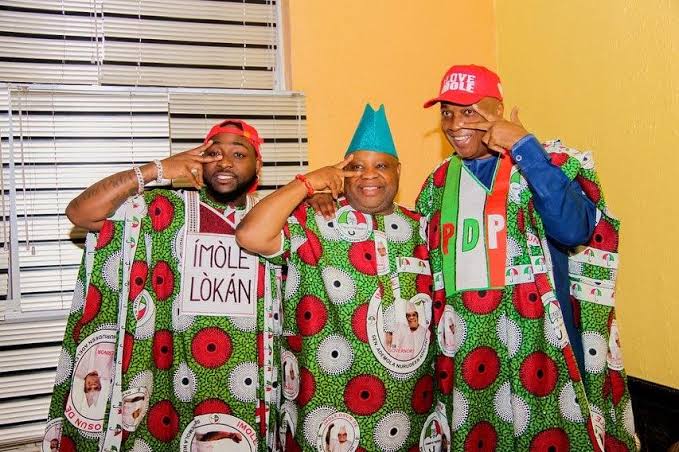
During Atiku’s 2019 presidential bid, Davido’s support was subtly present — in hashtags, stage presence, and even backstage photos with Saraki, then the Senate President and a PDP chieftain.
Why It Mattered:
This was the first time Nigerians saw a musician throw his full digital and grassroots weight behind a political party’s campaign. It marked a turning point — Davido wasn’t just visiting politicians; he was influencing votes.
Public Reaction:
- PDP youth forums hailed him.
- APC sympathizers labeled him partisan.
- Neutral voices warned that musicians should stay politically fluid.
DAVIDO’S DILEMMA: STAYING NEUTRAL IN A POLARISED NATION
Davido has consistently said he is not a politician. In interviews, he’s emphasized his commitment to the culture, not any party. But with every meeting, handshake, or tagged photo, the public begins to form its own conclusions.
In a country where entertainers are increasingly seen as influencers of political change, neutrality becomes both an asset and a liability.
The tightrope Davido walks, according to many :
- Associating with APC risks alienating the youth base that helped Adeleke win Osun.
- Distancing himself from power brokers risks losing access to policy influence, grants, and endorsements.
- Failing to clarify his stance risks being labeled an opportunist.
ENTERTAINERS IN POLITICS: THE NIGERIAN TRADITION
Davido isn’t the first Nigerian musician to flirt with politics. The late Sonny Okosun, Fela Kuti, and more recently, Banky W, have all used their platforms to challenge or enter the political space.
But unlike Fela, who was confrontational, or Banky, who ran for office, Davido’s approach is more diplomatic: proximity without commitment, influence without allegiance.
DAVIDO, INFLUENCE, AND THE FUTURE OF POLITICAL CELEBRITY
Why do politicians court Davido?
Because he commands a youth army—over 15 million Instagram followers, billions of streams, and cult-like loyalty among Gen Z Nigerians. His endorsement can sway youth perception, and in a country where 70% of the population is under 35, that’s political gold.
The real question is: Will Davido run for office someday?
He hasn’t ruled it out. And with a name, a network, and a narrative like his, the possibility is not far-fetched.
A CROWN BEYOND MUSIC?
Davido’s journey from global stage to state corridors reveals the evolution of influence in 21st-century Nigeria. Musicians are no longer just entertainers—they are kingmakers, political liaisons, and stakeholders in national conversations.
Whether his link-ups with Tinubu, Shettima, Atiku, Akpabio, and others were acts of diplomacy or ambition—one thing is clear: Davido is playing the long game.
And he’s playing it well.













Leave a comment